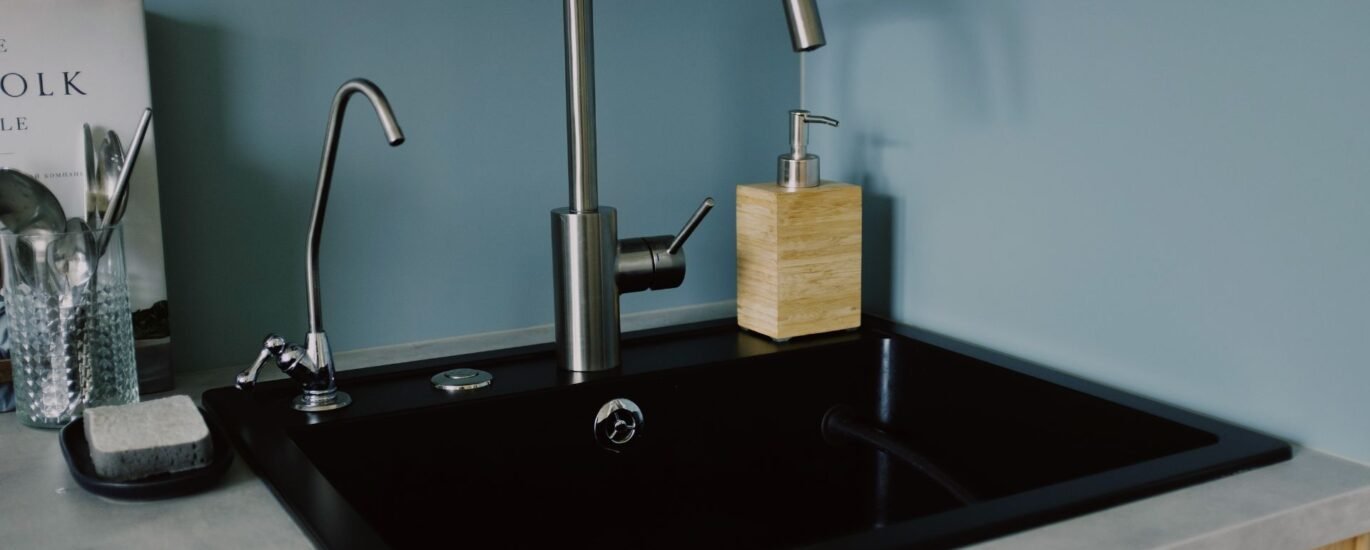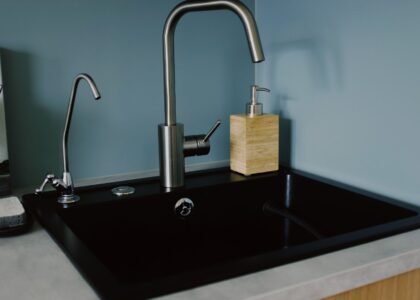Faucets and fixtures are important parts of any home. They are used daily, and sometimes they can have problems. Knowing about these common issues can help homeowners understand when a repair is needed.
Common Problems You Might See
- Leaky Faucets: A drip, drip, drip can waste a lot of water over time. This is often caused by worn-out parts inside the faucet.
- Low Water Pressure: When water comes out slowly from a faucet, it can be frustrating. This might happen because of clogs or other issues within the pipes or fixture itself.
- Noisy Pipes: Strange sounds like banging or whistling can come from pipes connected to fixtures. These noises often point to problems with water flow or pressure.
- Corrosion or Rust: Over time, metal parts of faucets and fixtures can rust or become corroded, especially in areas with certain water types. This can make them look bad and even cause them to stop working correctly.
- Loose Handles: Faucet handles can become loose, making them hard to use or control the water temperature and flow.
Why Faucet and Fixture Repair is Important
Addressing issues with your faucets and fixtures quickly is very important. Small problems can become bigger, more expensive ones if left alone. For example, a small leak can lead to water damage in walls or under sinks. This can cause mold to grow, which is bad for health and hard to remove.
Also, a leaky faucet wastes water. This means higher water bills. A proper faucet and fixture repair Denver service can help save water and money. It also keeps your home clean and free from potential water damage.
The Repair Process
When a faucet or fixture needs repair, a professional approach is often best. They follow steps to find the problem and fix it correctly.
Identifying the Problem
The first step is always to find out exactly what is wrong. This involves checking the faucet or fixture closely. Sometimes, the issue is clear, like a visible leak. Other times, special tools might be used to check inside pipes or listen for hidden problems. A skilled technician can quickly identify the root cause, whether it’s a worn washer, a broken valve, or a more complex pipe issue.
Tools and Techniques Used
Many different tools are used for faucet and fixture repair Denver. These can include wrenches, pliers, and special tools for cutting or sealing pipes. Repair techniques vary depending on the problem. For a leaky faucet, a small part called a washer or O-ring might be replaced. For bigger issues, parts of the pipe system might need to be taken apart and put back together. Professionals have the right tools and knowledge to do these jobs safely and effectively.
Choosing a Professional for Faucet and Fixture Repair Denver
When you need help with your home’s plumbing, choosing the right professional is key. Not all services are the same.
What to Look For in a Service
- Experience: Look for technicians who have fixed many different types of faucets and fixtures. Experience often means they can handle unexpected problems.
- Good Reviews: Check what other people say about their work. Positive feedback can show that they are reliable and do good work.
- Clear Pricing: A good service will tell you how much the repair will cost before they start. There should be no hidden fees.
- Proper Licensing: Make sure the professionals are properly licensed to do plumbing work in Denver. This shows they meet certain standards.
Benefits of Professional Service
Hiring a professional for faucet and fixture repair Denver offers many benefits. They can fix problems quickly and correctly, saving you time and stress. Professionals also ensure the repair lasts, using quality parts and proper techniques. This means you won’t have to worry about the same problem coming back soon. They can also offer advice on how to keep your plumbing in good shape, helping you avoid future issues.
Maintaining Your Fixtures
After a repair, or even just as a regular practice, maintaining your fixtures can extend their life. Simple steps can prevent many common problems.
- Clean Regularly: Wiping down faucets and fixtures keeps them looking good and prevents mineral buildup.
- Check for Leaks: Periodically look under sinks and around toilets for any signs of water. Catching small leaks early can prevent big problems.
- Avoid Harsh Cleaners: Some strong cleaning chemicals can damage the finish of your fixtures over time. Use gentle cleaners.
- Don’t Overtighten: When turning off a faucet, don’t use too much force. Overtightening can wear out internal parts faster.
By taking these steps, your faucets and fixtures can continue to work well for many years.





